Choosing the right restaurant tables is a crucial aspect of designing an inviting dining space that not only enhances the ambiance but also optimizes functionality. With countless options available, it can be overwhelming to pinpoint the perfect style, shape, and material that aligns with your restaurant’s theme and operational needs. This blog will delve into the essential factors you should consider when selecting restaurant tables, comprising five key reasons that highlight their significance in creating a memorable dining experience. From maximizing space and boosting aesthetics to ensuring comfort and facilitating social interaction, understanding these elements will empower you to make informed decisions that elevate your establishment’s appeal.

Join us as we explore how the right restaurant tables can play a pivotal role in the success of your dining environment.
When selecting the perfect table for your restaurant, understanding the nuances of different table types is crucial. The right table can significantly influence the dining experience, customer flow, and overall aesthetics of the space. With the restaurant industry in a state of evolution, as evidenced by the rapid growth projections for fast-service restaurants, especially over the next decade, it’s essential to consider not only the design but also the functionality of the tables you choose. While traditional dining tables can create an inviting atmosphere, flexible options such as modular tables can optimize space and accommodate varying customer volumes.
Moreover, in an environment where many entrepreneurs are looking to capitalize on emerging dining trends, choosing the right table type can differentiate your restaurant from the competition. As the market for fast-service establishments expands, the emphasis on efficiency and quick turnover rates becomes increasingly important. Tables that are easy to clean and rearrange can enhance operational flow, making it easier to serve customers swiftly while maintaining a pleasant setting. Ultimately, the careful selection of table types tailored to your dining space will not only support your brand but also cater to the evolving preferences of your clientele.

When selecting the perfect restaurant tables for your dining space, understanding the pros and cons of different materials is crucial. For instance, wood tables provide a classic appeal and are praised for their durability and warmth. According to industry reports, wooden tables generally have a lifespan of 10 to 15 years with proper care, making them an excellent investment for establishments aiming for a timeless aesthetic. However, they can be susceptible to water damage and scratching, which may require periodic refinishing.
In contrast, metal tables offer a modern touch and are often praised for their strength and resilience. They are typically easier to clean and resistant to stains, contributing to their popularity in casual dining environments. However, a recent survey indicated that while 64% of consumers appreciate the durability of metal tables, they sometimes lack the inviting feel that wood exudes, which can affect the overall dining experience. For those contemplating materials, consider options like glass tops combined with wooden or metal bases, as they offer a blend of elegance and functionality. Coupled with the right selection of chairs, you can create an inviting atmosphere that enhances your dining space.
| Material | Pros | Cons | Best Use |
|---|---|---|---|
| Wood | Warm, classic look; durable; various finishes | Can be expensive; needs regular maintenance | Traditional and fine dining settings |
| Metal | Durable; modern aesthetic; easy to clean | Can be cold in appearance; may rust | Contemporary or industrial dining spaces |
| Glass | Stylish, elegant; gives an illusion of space | Fragile; fingerprints and smudges visible | Upscale dining establishments |
| Laminate | Affordable; wide variety of designs | Less durable than solid materials | Casual dining or cafes |
| Concrete | Very durable; unique industrial look | Heavy; can be uncomfortable without padding | Modern cafes and restaurants |
Choosing the right table size and shape is crucial for enhancing guest experience and optimizing space in your dining area.
Round tables, for instance, create a more intimate atmosphere, encouraging conversation among guests. They allow for easy movement and can be seamlessly incorporated into various layouts, making them perfect for smaller spaces.
On the other hand, rectangular tables can accommodate larger groups and are ideal for creating a more formal dining experience.
These tables can be placed against walls or used to define different zones within the dining area, providing flexibility in seating arrangements.
Additionally, the height of the tables plays a significant role in how guests perceive their dining experience.
Standard dining tables offer a classic approach, while high-top or bar tables can contribute to a more casual, trendy vibe.
Selecting the right table height can enhance comfort and accessibility, catering to diverse guest preferences.
Careful consideration of table size and shape not only improves space utilization but also contributes to an inviting atmosphere that keeps customers coming back for more.
The design and aesthetics of restaurant tables play a crucial role in enhancing the overall ambience of a dining space. According to a report by the National Restaurant Association, 60% of patrons consider the interior design of a restaurant as a key factor in their dining experience. This highlights the significance of choosing tables that not only serve a functional purpose but also contribute to the establishment's aesthetic appeal. Selecting tables that fit the theme and atmosphere—whether it’s minimalist, rustic, or elegant—can transform a simple dining area into a memorable experience for customers.
Moreover, the materials used in table construction can influence the perception of a restaurant’s quality. A study by Restaurant Sciences revealed that diners are more likely to revisit a restaurant if they perceive the furniture as high-quality and well-designed. Tables made from solid wood, for instance, can create a warm and inviting environment, while modern metal and glass designs might appeal to a contemporary clientele. Utilizing a mix of styles can cater to diverse customer preferences, ultimately enhancing satisfaction and encouraging repeat visits. When outfitting a dining space, restaurant owners should prioritize not only durability but also how tables contribute to the desired atmosphere, reinforcing brand identity and customer loyalty.
When it comes to designing the perfect dining space, choosing the right type of restaurant tables can significantly impact both aesthetics and functionality. One major consideration is whether to opt for modular or fixed tables. According to industry reports, modular tables enhance flexibility, allowing restaurants to quickly adapt their space for varying party sizes or special events. In fact, 62% of surveyed restaurant owners expressed a preference for modular solutions due to their ability to optimize floor plans and maximize seating capacity during peak hours.
Tip: If your restaurant frequently hosts large groups or special events, consider investing in modular tables that can be easily rearranged. This adaptability not only improves customer satisfaction but can also lead to increased revenue by accommodating more diners efficiently.
On the other hand, fixed tables provide a sense of permanence and stability, which can help create a more formal dining atmosphere. Industry studies indicate that when used in fine dining establishments, fixed tables contribute to a more comfortable and cohesive dining experience, as 57% of diners feel that this setup fosters better interactions among guests.
Tip: For fine dining settings, complement fixed tables with comfortable seating and adequate spacing to enhance the guest experience. This creates an inviting ambiance that encourages patrons to linger longer, potentially increasing your check averages.

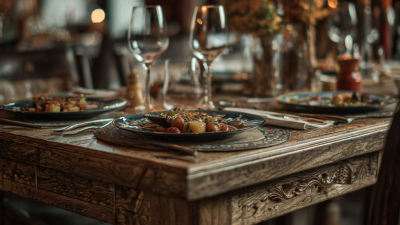
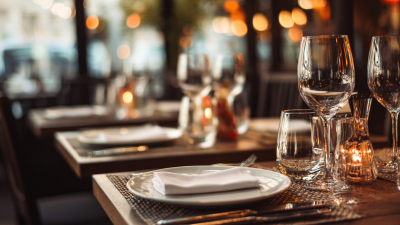
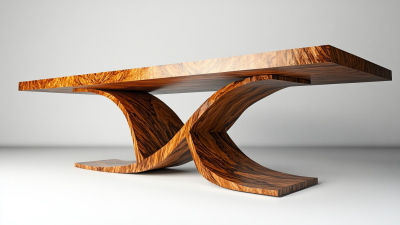


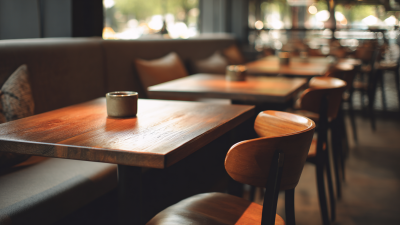
©2024 Pine Vista LLC, DBA Design Manufacturing Group. All Rights Reserved.
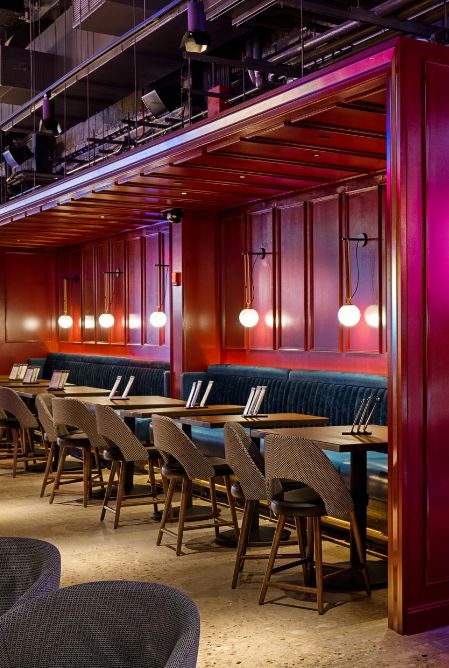


©2024 Pine Vista LLC, DBA Design Manufacturing Group. All Rights Reserved.
